'Football fans have been ignored for the last decade': James Kirkham, Head of Copa90
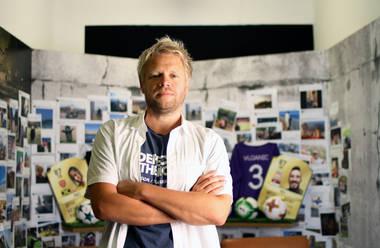
With 85 million views per month, it's no wonder they are attracting sponsorship and content partnerships with some of the world's biggest brands. Taking football out of the dull TV studio and into the noisy stands, streets and living room, Copa90 are capturing the emotion and intensity of the beautiful game through a fan's eye, whilst demonstrating that you don't need live broadcast rights to capture an audience of millions of 18-25 year olds. We spoke to the Head of Copa90 about the death of TV, outdoor that surprises, and fulfilling platform promises.
What's your job description, in your own words?
The Head of Copa90 role means I stick my nose into other people’s business - I mean that in the best possible way! I'm here to drive us forward into exciting new areas, work with some exciting and progressive brand partners and ensure we tell brilliant stories, across our various platforms.
What was the idea behind Copa90?
Copa90 took a fan-centric perspective right from the start at a time when it just wasn’t done. Now it’s been much mimicked to have that point of view from the fans and be on behalf of the fans but six years ago, that was novel.
We did that very literally by turning the camera back round onto the fans and creating a football business without broadcast rights that was about the fans and the supporters. It was about everything outside of the 90 minutes. That was where it started.
We were born on YouTube and today we use Facebook, Snapchat and a wide variety of platforms to get brilliant storytelling out to our fans whilst working with big global brands including Adidas, Pepsi Max and Hyundai.
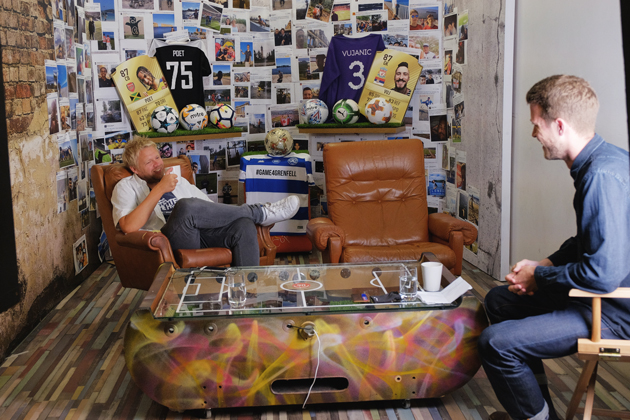
What is Copa90 challenging as a brand?
Copa90 has a complete challenger mentality. There’s a huge establishment within football that needs challenging. Fans have been disenfranchised and disenchanted over ticket prices, they're aggrieved at spiraling player wages and agent fees, and they’ve been ignored by the powers that be for the last decade.
We believe football is the universal language and that is something that we are trying to do good with, and that’s always for and on behalf of the fans. Whether it's backing supporter initiatives such as safe standing or questioning ticket increases, we are there with the fans, and what they are choosing to do.
How do you know what the modern football fan wants?
Fans tell us immediately what they want and we’ve always built work around that. It’s not like my old advertising world where we would stick an ad out and three months later evaluate its performance. It’s just so visceral and real now. The feedback loop is absolute and ongoing.
‘Comments Below’ is our regular Monday show. It is quite literally predicated on the comments that are left by the audience, every single week. The entire show is built around comment. It’s not reading out a Tweet like you might get on some TV shows and claiming it’s "interactive". It’s absolutely born from it.
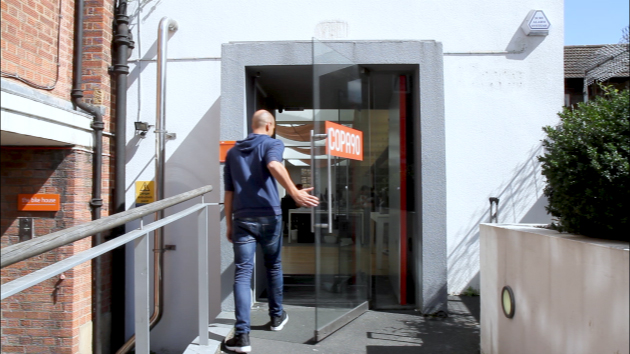
How is the sports media landscape changing? What does that mean for the traditional broadcasters?
I think what’s happening right now in sport is exactly what happened in the music industry fifteen years ago, but we don’t have a Napster moment. I’m convinced that it is the same exciting, seismic shifts going on right now with how consumption habits are changing.
Whether in the US through ESPN or in the UK on Sky Sports, their declining viewing figures proves that the live product is not viewed as it once was. With new platforms entering the game, the whole world order is altering, and media has become unbelievably fragmented.
The way you watch your team over the weekend is very different from five years ago, and remarkably different from twenty years ago. A diet of Match of the Day, The Sun and TalkSport is no longer sufficient, and for a long time and even still now, people in certain positions assume that it is.
You may as well be speaking to people on another planet such is the dispersed nature of where audiences actually sit. It’s not like we’re anti-newspapers or anti-TV or anything like that, we just inhabit the places where our audience spend their time.
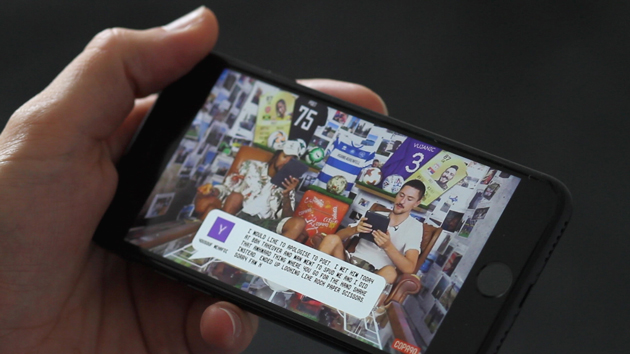
Is TV dead then, do you think?
I don’t think TV is dead, but it is having a fight. I mean my eight-year old boy doesn’t turn the telly on anymore. Now, no one’s taught him not to, and his mum and dad still do, so you do see a struggle for it. What he does do is search YouTube on the iPad in the morning for what he wants to watch.
Now we’re not aiming ourselves at eight-year olds but they’re obviously the canary in the coal mine. Right now, TV is still part of the diet of a football fan, but it is only a part. It used to be everything. In my days, I could only watch football at a very specific time on a very specific show.
The choice now is so plentiful and so often predicated to on convenience and what works for the viewer. Whether it's consuming news via Twitter, watching goals as GIFs or seeing Paul Pogba announce the signing of Lukaku via an Instagram story, as a sports brand, you have to be in those different places.
How are you building awareness?
The funny thing is, marketing isn’t a problem when you’re publishing 1,500 pieces of viral content a month. It’s its own marketing machine. We're also very fortunate that influential people want to talk and write about us.
We've done sneaky bits of outdoor that people have really noticed. It’s funny how fans of Copa90 see a piece of outdoor as amazingly new. Never mind the amazing ten-minute docs that you’ve been creating, a bit of outdoor underneath an Arsenal underpass suddenly creates a stir!

Photo: Copa90
Why is that do you think?
It’s funny, isn’t it? I find that an anomaly actually. I think for brands born in a digital age that have been entirely conceived online, it’s then surprising for audiences to see those brands exist in the real world. Surprising partnerships and combinations do just that - they surprise.
You clearly see Copa90 as a challenger, both to the traditional sports broadcasters and to the football establishment. What do you see as the cultural or strategic advantages from adopting that position?
Being a challenger means your ambitions have got to be almost through the roof. We’re trying to change 100 years of sports media. Those grandiose ambitions are a really good thing because that boldness and audacity translates all the way through the company and gets people excited and enthusiastic.
Big ambitions create that challenger mentality that you’ve then got to try to breed and cultivate. Some people do have to make it, and break that ceiling and so why not you? You’ve got to believe you can get there.
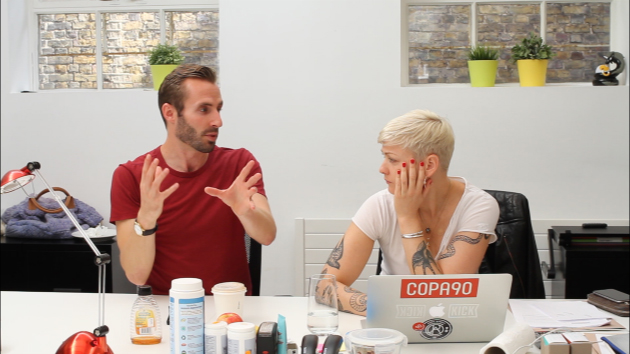
As a business based upon the advertising model, does that mean that your main measure of success is audience volume?
e.g. the amount of followers you have?
We're averaging 85 million views per month right now and it's obviously an important statistic. The one I'm most proud of though is that a Copa90 fan spends an average of 35 minutes per week watching Copa90 content. That's almost like watching an episode of Billions or Game of Thrones.
This is an audience who we are continually told have constant partial attention. We're told they're fickle and fleeting, but that statistic proves you can capture their attention and actually have a long amount of dialogue with them, if you can provide the right content, through the right platform, at the right time.
We had Jeremy Corbyn on Copa90 just before the UK general election. We weren't being political or supportive of any one party, we were talking football. Yet the mainstream media said we were responsible for the mobilising of the youth vote which nearly got Labour into power.
So there have been some surprising results. To have been credited with that level of influence is wonderful and something we don’t take for granted.
In your opinion, what have been the key lessons from growing the audience to 85 million monthly views?
In our space, action works I think. We’ve had everyone on from Stormzy, to Paul Pogba to Jeremy Corbyn. It’s an exciting mix of celebrity but they’re loose and doing funny stuff. They’re playing FIFA. They’re having a laugh with people like our hosts Poet and Vuj who breakdown all barriers of it being an interview.
We are also built around fulfilling platform promises i.e. we spend an awful lot of time thinking: is this right for the platform? Is it right for the audience? Whether on YouTube, Snapchat or FaceBook, there are all nuanced reasons for people being on each platform which need to be considered.
Finally, we make sure we regularly try something new and unexpected. Our Saturday morning show 'Saturdays are Lit' has ended up being arguably our biggest show with 49 million views globally. It’s important to trial and test as well as deliver what's expected. You have to leave room for that innovation.
This article originally appeared on thechallengerproject.com